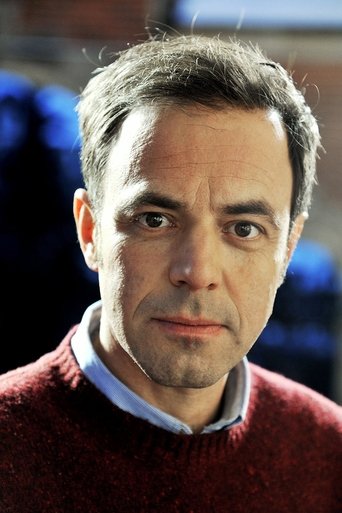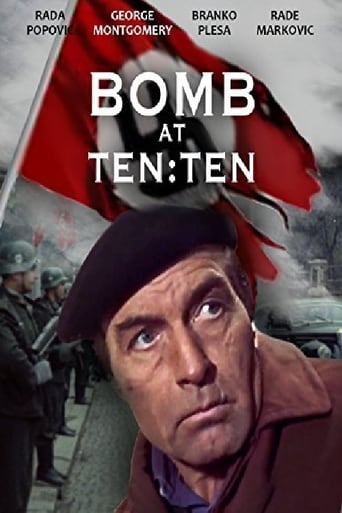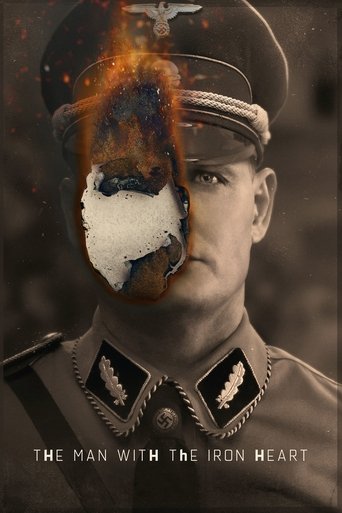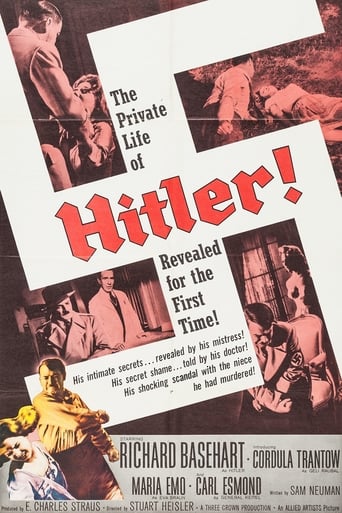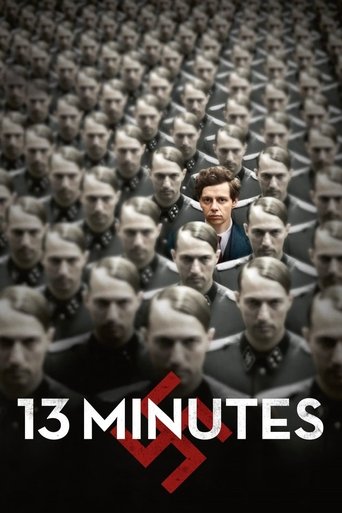
13 Minutes (2015)
The breathtaking story of a man who nearly would have changed the world. In 1939, when Hitler tricked millions of people at the height of his power, radical Georg Elser — disparaged as an assassin — is one of the greatest resistance fighters.
- Oliver Hirschbiegel
- Fred Breinersdorfer
- Léonie-Claire Breinersdorfer
Rating: 6.8/10 by 275 users
Alternative Title:
Thirteen Minutes - US
Un héros ordinaire - FR
13 Minutes - GB
Τα 13 λεπτά που δεν άλλαξαν την ιστορία - GR
13 Minutes - HR
13 minutos para matar a Hitler - ES
엘저 - KR
Elser - Er hätte die Welt verändert - DE
Georg Elser - Es muss sein! - DE
Elser Er haette die Welt veraendert - DE
埃尔塞:将近改变世界的人 - CN
Country:
Germany
Language:
Deutsch
Runtime: 01 hour 54 minutes
Budget: $0
Revenue: $147,315
Plot Keyword: assassin, nazi, bomb
13 Minutes reminds me mostly of two things: Sideshow Bob’s “Do they give a Nobel prize for attempted chemistry?”, and Dominic Toretto’s “It doesn't matter if you win by an inch or a mile, winning's winning” — and, by the same token, losing is losing, whether by 13 minutes or 13 hours. According to a poster, this movie is “based on the true story of the man minutes away from almost killing Adolf Hitler.” The operative word here is “almost” — which as we know only counts in horseshoes and hand grenades. The film is subtitled “Er hätte die Welt verändert,” or “He would have changed the world.” Woulda, coulda, shoulda, didn’ta. I really don’t understand the fascination with both historical and fictional attempts on Hitler’s life. I mean, it’s just like Terminator; no matter how many robots Skynet sends back in time, John Connor will always live to tell the tale — and so did Hitler until he killed himself (now, if only they made a movie wherein a Hitler from an alternative future timeline is sent to terminate our reality’s version of him; perhaps the one good Hitler in the entire universe is tasked with eradicating his evil counterparts, sort of like that Jet Li movie). Wikipedia informs me that “No fewer than 42 [Hitler assassination] plots have been uncovered by historians. However, the true number cannot be accurately determined due to an unknown number of undocumented cases” (I know that Tarantino did have Hitler killed, but Inglorious Basterds doesn’t count; not because it’s speculative fiction — which it actually isn’t really at all — but because it’s stupid). The movie deserves some credit for choosing an obscure subject; I for one wasn’t aware of Georg Elser’s existence, but then maybe there’s a reason for that — after all, I’m also unaware of the myriad individuals who almost climbed Mount Everest. What makes Elser any more special than the other 41 would-be Hitler killers? If anything, he comes across (at least based on what we learn about him in the film) as a bit of a jerk: he has a child out of wedlock whom he abandons; he seduces a married woman, commits adultery, and procreates another bastard (what? Look it up, that’s the correct word); and he kills eight innocent bystanders in his failed bombing of Hitler (by the way, this is an oddly sedate Hitler; even when he’s giving a speech — the only time we see him —, he does so sans his usual incendiary oratory; odder still because the film is directed by Oliver Hirschbiegel, whose Der Untergang features the famous, foaming-at-the-mouth Bruno Ganz performance), none of which he ever appears to be very contrite about.





